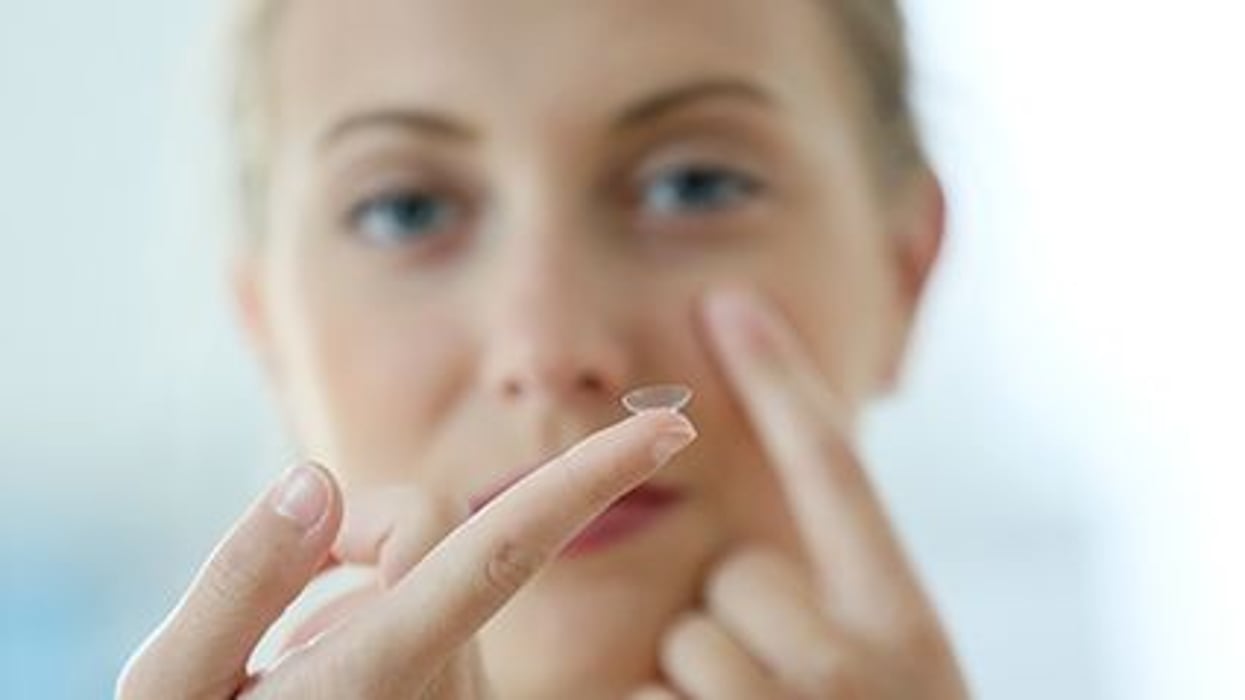Take Care When Handling, Storing Your Contact Lenses

TUESDAY, Sept. 20, 2022 (HealthDay News) -- Contact lenses can be indispensable for those with poor vision, but if they aren't properly cleaned and stored you run the risk of serious eye infections, experts say.
Up to one out of every 500 contact lens wearers get such infections every year, which can sometimes lead to permanent blindness. Even minor infections caused by contamination are painful and disrupt daily life, according to the American Academy of Ophthalmology.
Regardless of whether contact lenses are worn to correct vision issues or just for special occasions, all contact lenses are considered medical devices by the U.S. Food and Drug Administration and need to be accompanied by a valid prescription, the academy noted in a news release.
What kinds of eye problems can contact lenses cause?
- Scratches: These can be caused by contact lenses that are too old or don't fit properly. They can also cause blood vessels to grow into your cornea, a risky condition that can impair your sight.
- Dry eye: This is a common symptom when wearing contact lenses, but if you use eye drops to fix it, your lenses may become damaged, the academy warned. While you should avoid using eye drops, if you do you should use lubricating drops without preservatives or wetting drops.
- Allergies: Irritating particles can gather on your contact lenses and then come into contact with your eyes. If your vision becomes blurry or you see pus in your eye, these symptoms could signal severe eye issues.
How can you prevent these problems?
- Don't sleep with your contacts from the previous day still in your eyes unless it is prescribed by your eye care provider. When sleeping with contacts in, the warm and wet environment is an easy place for bacteria to live and multiply, often causing an infection.
- Wash your hands with soap and warm water before handling your contact lenses. Drying your hands after washing them is almost as important as washing them. This is because water can introduce germs to the eye if left on the lens when inserted.
- Any contact lens you take out of your eye must be cleaned and sterilized before being reinserted. There are many different cleansing methods that depend on the type of contact lens you use, if you have allergies or other factors. Ask your eye doctor about the best way to clean your contact lenses.
- Every time you take out your contact lenses, you should rub them and rinse them with a contact lens disinfecting solution. And then empty and dry them.
- Never use a homemade saline solution, tap water or saliva to clean your lenses.
- Use only a new disinfecting solution for your contact lenses. Never mix new solution with old or used solution. And only use the specific cleansing solution recommended by your eye care provider.
Here's a video on how to clean your contact lenses properly:
Though more than 45 million Americans wear contact lenses, they are not for everyone. You may not be able to wear them because you:
- Frequently have eye infections
- Have severe allergies or dry eyes that are hard to treat
- Work or live where it is very dusty
- Are not able to properly care for contact lenses
Overall, your contact lenses should feel comfortable and allow you to see well. If this is not the case, inform your eye doctor and discuss other options, the academy said.
More information
The U.S. Centers for Disease Control and Prevention offers more details on contact lens wear and care.
SOURCE: American Academy of Ophthalmology, news release, April 22, 2022
Related Posts
Common Gout Drug Is Safe in Patients With Kidney Issues
WEDNESDAY, Jan. 26, 2022 (HealthDay News) -- Allopurinol, a frequently used gout...
No Cognitive Benefits Seen for Meditation, Nonnative Language Training
MONDAY, July 24, 2023 (HealthDay News) -- Meditation and nonnative language...
Prostate Cancer Biopsy, Diagnoses Down During the Pandemic
MONDAY, April 11, 2022 (HealthDay News) -- Prostate biopsy and prostate cancer...
Road Rage: When Stress Hits the Highway
In Truckee, California, 25-year-old Timothy Brooks flew into a rage after...
